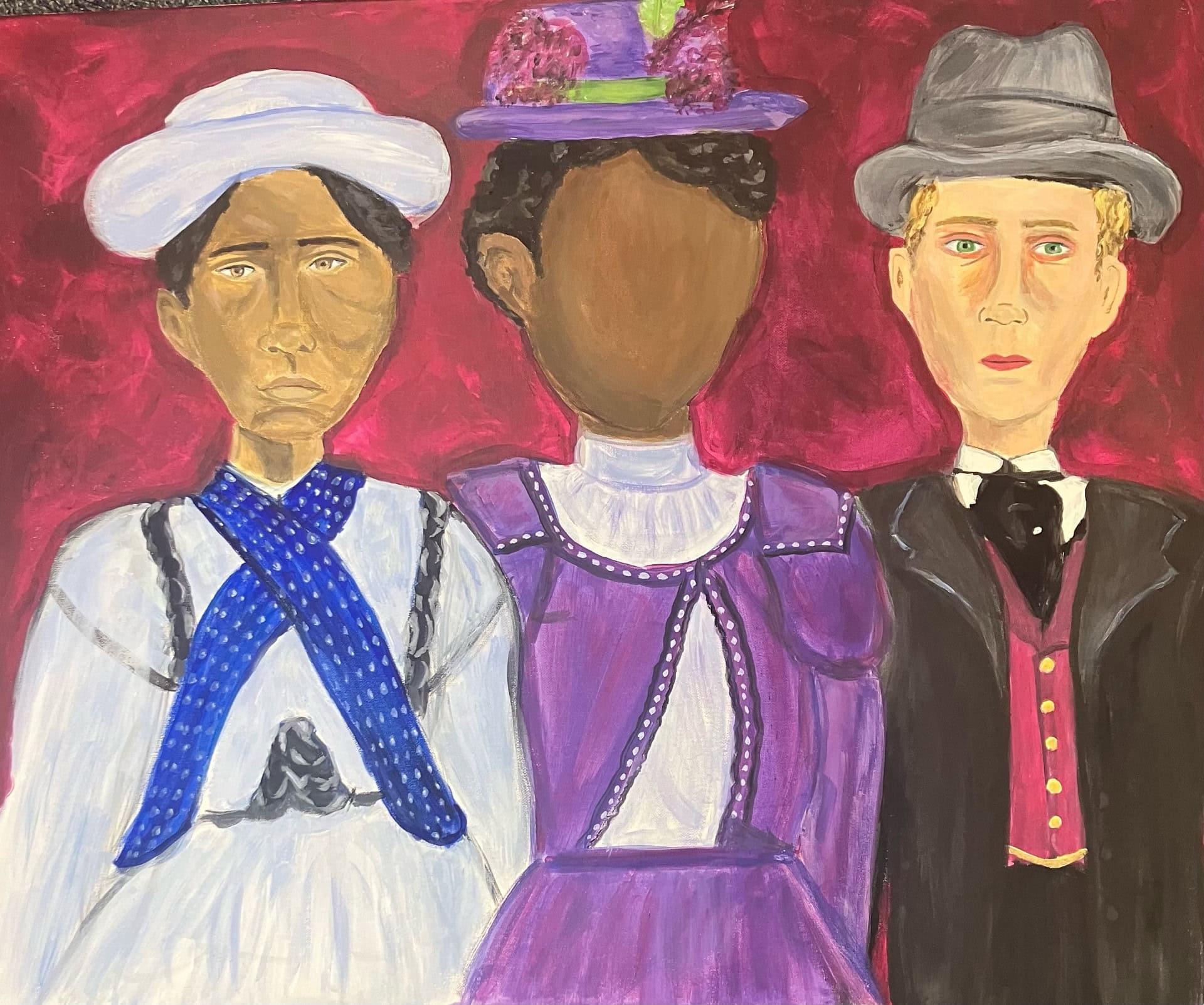In 1992 we became self-proclaimed public historians. We did so with no training in public history; indeed, our graduate school experience was in most respects very traditional, meant to groom students for teaching/research positions that simply did not, and likely will not, exist in sufficient numbers to absorb all the well-qualified candidates scrambling after them. Admittedly, then, our initial embrace of public history was largely a reaction to market conditions. Admittedly, too, public history has brought us neither fame nor fortune; however, to our surprise and delight, it has brought a steady flow of satisfying and rewarding work.
Our initial turn to public history might have been construed by academic mentors and colleagues as an admission of failure. Certainly, the disjunctions between public history and academic history have tended to marginalize public historians within the larger professional community, and, just as certainly, most doctoral candidates in history have little if any sense of the varied career possibilities in public history. Meanwhile, the grim demographic realities of the academic job market, both present and future, reinforced by the uncertain prospects for continued federal funding of academic research, suggest that a significant proportion of new Ph.D.’s in history will, as a matter of necessity, find employment outside academia and perhaps even outside the history profession.
We began our graduate studies at the University of Iowa-one of us in the late 1970s and the other in the mid-1980s-as nontraditional, middle-aged students, coming to graduate school with the common run of life experiences in work, marriage, child rearing, and community affairs. Both of us also came to graduate study with little formal background ill history, holding undergraduate degrees in pharmacy and speech pathology, respectively. Such varied intellectual backgrounds and life experiences are not, by all appearances, unusual in the history graduate student population. Nor is it unusual for graduate students of whatever background to assimilate, as we did, to a graduate program with very traditional objectives and expectations.
After a brief sojourn on the temporary appointment circuit, our introduction to public history came in the late 1980s through an unexpected opportunity to compile a history of the University of Iowa’s Department of Internal Medicine, an opportunity resulting from a referral by an academic acquaintance. On the slim basis of that one completed project, we opened our office in 1992 with little more than two computers, a telephone, high hopes, and a few ill-formed notions of how to proceed. Since that time, our most surprising and welcome discovery has been the way in which public history has magically transformed apparently unmarketable backgrounds in the health sciences and in the history of the health professions and health-care institutions into marketable expertise. After a varied series of contracts in the history of medicine, pharmacy, and nursing, we have come to see ourselves as true public historians.
Each of our projects has been an invaluable learning experience, in terms of the essential nuts and bolts of both business and history. Each has also afforded a boost of confidence and an introduction to a new community of professional contacts. Perhaps most important, however, are the similarities we have observed -between the academic history for which we were trained and the public history that we practice. When all is said and done, both academic and public history are grounded in the close scrutiny and interpretation of historical records. Likewise, the best of public history orients its specific subject matter with regard to larger issues and contexts-political, cultural, economic, or technological. Also, quite apart from the challenge and pleasure of the work itself, both academic and public history serve much the same instrumental purpose of enhancing one’s market position and, one hopes, influencing the policies and behaviors of individuals and institutions.
Public historians, like their academic colleagues, are also concerned with erecting peer-review structures for their products; in our own work, most of which is book-length institutional histories, we encourage our clients to submit finished manuscripts to qualified outside readers, often academic historians, for review as a means of validating both the product and the historians who produced it. Likewise, the Public Historian, the journal of the National Council on Public History, has recently inaugurated reviews of the so-called gray literature produced by public historians, material that does not normally find its way into circulation. It is also the case that more and more public historians are publishing in peer-reviewed journals and attending conventions and meetings aimed principally at academic historians.
Given that we make no claim to intelligence or expertise beyond the norm, our modest success surely suggests the feasibility of adapting traditional history graduate training to a still largely undeveloped public history market. Nonetheless, it is true that graduate students positioning themselves for that market, but not enrolled in formal public history programs, would be well advised to give careful consideration to the choice of dissertation topic and, at an even earlier stage, to individual programs of study so as to include elements, such as cultural or architectural history, often demanded of the public historian. Graduate students would also do well to make contact with the community of practicing public historians, a community that is, by and large, a remarkably supportive one. The National Council on Public History provides a formal program for graduate students at its national meetings, and, at an informal level, individual public historians readily take time from their own affairs to offer advice, assistance, and encouragement.
Public history is not for the faint of heart; indeed, we ruefully credit our mistakes for a good part of what we have learned. Particularly for the self-employed, public history does not offer the job security and perquisites, from health insurance to vacation and retirement plans, of a tenured position, and the public historian’s economic survival depends upon business skills not found in the standard graduate curriculum. In addition, the practice of public history constrains the historian’s research agenda, because all public history research is, of necessity, funded research, while the public historian works within the confines of fixed-sometimes hair-raisingly short-production schedules generally defined by contract.
On a day-to-day basis, we often encounter patchy or hopelessly jumbled archival records and have, from time to time, received less than enthusiastic cooperation in conducting our research. The first of those problems we ascribe to the fact that institutions tend not to place much store in history, while the second reflects a general lack of understanding of the historian’s work, combined with the fact that those who control access to important documents are already overburdened with day-to-day responsibilities. Finally, the public historian must be sensitive to public relations and must, in the end, please paying clients, most of whom likely have little notion of what history is but who may well have preconceived notions of how it should be written.
The last point may be the most important issue separating academic and public historians; certainly the questions most often asked of us by friends in academia revolve around professional autonomy. Our first response, sometimes left unsaid, is that the academic historian’s position is not an unfettered one; that is, tenure and promotion decisions, the quest for research grants, and the nature of the publication process all influence the selection of research topics and the presentation of findings. Our second response is that in public history as in academia, insistence upon adequate professional standards is the only insurance against bad history badly done. For the most part, we have found that our clients readily concede the importance of professional credentials and standards, perhaps especially so in the health professions, where credentials play so large a part in ordering administrative relations and in demarcating areas of professional jurisdiction.
In conclusion, then, is there life after graduate school for current history graduate students and for new history Ph.D.’s? The answer, from our perspective, is yes and no. On the one hand, if life means an academic appointment with a guarantee of lifetime employment, the answer, for far too many, is no. On the other hand, for those willing to consider careers outside academia, the answer is a qualified yes—qualified, that is, by their willingness to prepare themselves by learning and using new skills and by courting new audiences for history. At the least, career opportunities in public history deserve consideration by history graduate students, by new Ph.D.’s in history, and, one might also add, by those who conduct graduate training programs in history.
Lee Anderson received his PhD in history from the University of Iowa in 1987. Kathy Penningroth received her MA from the University of Iowa in 1986; she completed her graduate studies at the university with ABD status in 1990. Currently partners in A&P Historical Resources, their combined resume includes three books, with two more in the process of being published, and a number of articles and book reviews in the history of pharmacy, medicine, nursing, and education.

